The Auditor General’s Special Report on the Government Digital Payments Platform, better known as eCitizen, has revealed a number of serious concerns about how public money has been handled.
At the centre of the findings are questionable transactions, irregular fee collections, lack of transparency, and unclear ownership of the platform despite it being used for key government services.
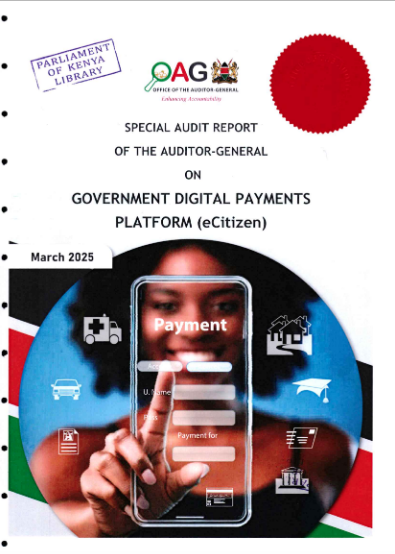
One of the key revelations is the diversion of funds from Paybill number 222222, which is supposed to be the mandatory payment channel for government services.
Instead of all funds being transferred directly to the designated Settlement Account at KCB Bank, the report found that on 25th January 2024, four transactions totalling Ksh 127,850,950 were sent from this Paybill to private entities.

This is against the procedure set by the National Treasury, which had expected that all money received through the platform be automatically sent to the official Settlement Account. Another issue raised is the irregular collection of convenience fees.
According to Gazette Notice No. 9290/2014, the administrative fee to be charged per transaction should be a prorated percentage of the amount paid.
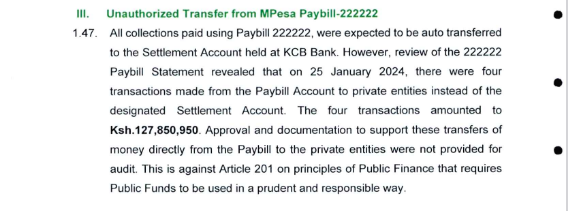
However, before January 2023, the National Treasury had not put in place a prorating structure. Instead, a flat fee of Ksh 50 or USD 1 per transaction was charged, contrary to the law.
This led to the irregular collection of Ksh 1.8 billion and USD 3.3 million from users of the platform. Further investigations showed that Equity Bank statements for eCitizen’s collection accounts reflected deposits of Ksh 68.7 million and USD 48,142,844 from an account named ‘Pesaflow’.
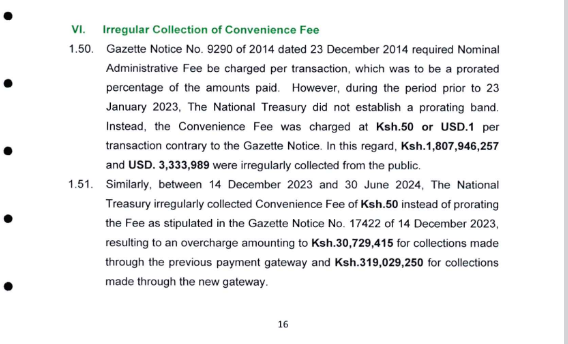
However, this account was not among those approved by the National Treasury for receiving payments.
Despite this, it was used to collect money from users, raising more questions about who was in charge of the funds and how they were being handled.
There were also issues with revenue traceability. The Revenue Accountability Statements as of 30 June 2024 revealed a balance of Ksh 2.57 billion in the Settlement Account that could not be matched to any invoices from the Pesaflow system.
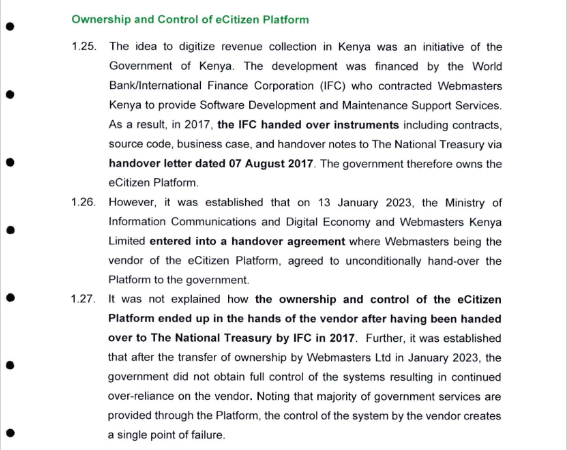
This suggests gaps in how money is tracked once it enters the system. A similar problem appeared in the settlement reports. For example, eCitizen settlement reports for the Tourism Fund indicated that Ksh 2.24 billion was due for settlement by 30 June 2024.
However, the actual amount paid out according to weekly reports was only Ksh 1.72 billion, leaving a difference of Ksh 515 million unaccounted for.
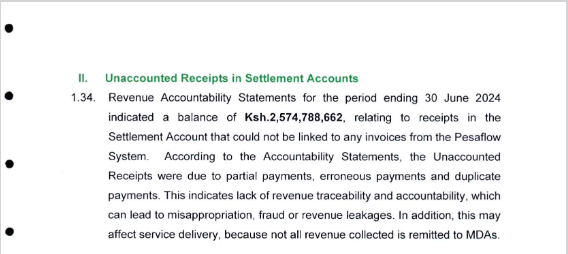
The report also highlights concerns about the ownership and control of the eCitizen platform. Although the platform was handed over to the National Treasury by the International Finance Corporation (IFC) in 2017, it remains unclear how it later ended up under the control of the vendor again.
Even after Webmasters Ltd reportedly transferred ownership in January 2023, the government still did not get full control of the system and continued to depend on the vendor to run critical services.
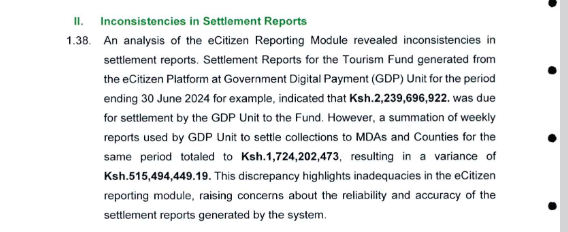
Lastly, despite the government having an agreement with Webmasters Kenya Ltd, Pesaflow Ltd, and Olive Tree Media Ltd for system maintenance and support, payments were made to a different company altogether.
As of 30 June 2024, the government had paid Ksh 492 million and USD 414,299 to a company called Electronic Citizen Solutions Ltd, which was not a listed party to the original contract.
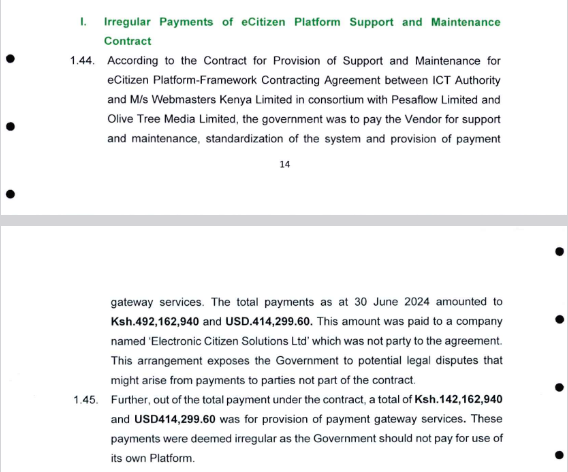
These findings point to deep issues within the digital payments platform that handles billions in public money.
The lack of proper oversight, accountability, and transparency raises serious concerns about the safety of funds and the management of critical digital infrastructure in the public sector.





















Add Comment